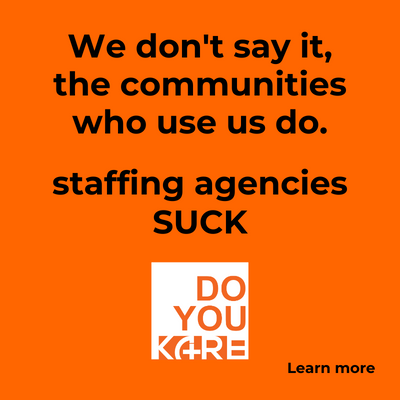By Pam McDonald
Late last year in a casual conversation Mary Ann Donaghy was having with our Publisher Steve Moran, they began imagining our industry with fewer challenges for women and more opportunities to contribute to their organizations and their elderly residents. This led to the formation of the Empower initiative that is seeking to close the communication gap and work style differences between men and women. Below are takeaways from a podcast interview that Co-Host Pam McDonald conducted with Mary Ann, former chief marketing and communications officer for NIC, about the aims and plans for the initiative. You can listen to the first interview here.
Steve [Moran] and I always have interesting conversations, and during one we were talking about the challenges for women in the corporate world. We realized there was an opportunity to do something tangible and helpful for women in our sector. In many cases at the corporate and senior executive level, there is a much higher percentage of men. We started talking about opportunities to really help women take their career to the next level and, ultimately, improve the organizations themselves.
Steve pulled together a board of women and three men, which by the way is fantastic because part of what we’re trying to do is understand each other a little bit better. We had our first meeting in the fall, our second meeting in December, and really locked down our mission, which is to empower women to enrich their professional lives in senior living.
“If You’re Happier at Work, Your Whole Life Is Better.”
We believe that in many cases women have not had the level of mentorship they need to overcome some obstacles and challenges they have in their careers. They don’t always have the confidence in their professional capabilities or in their ability to overcome some challenges. So, the idea of enriching their lives is the following: if you’re happier in your work and you have more collaborative and positive working relationships, your whole life is better. With women and just as much with men, work-life balance is really important. Our whole lives are impacted by our work environment and our work happiness.
Our goal is to have a tangible impact on operations and culture through what we do. So, the first is a mentorship program. We are going to build a site with a matching functionality. We’ll ask potential mentors some basic information, like the number of years they have in the sector, what their role is in their organization, how much time they have, and any sort of special skills they think they have to contribute to a mentee. Then mentees will complete a form with the same kind of information: what type of mentor they’re looking for, if they have some special challenges or needs or skill sets that they are hoping to develop. We’ll match these folks up and let them manage the relationship in an informal way.
We envision over time, creating or expanding the mentorship programs and functionality, but certainly we want to get it up and running, and maximize the number of mentors who sign up, so we have a really robust bench of mentors to help the mentees. We believe this mentorship aspect is probably most important element of our efforts.
Everyone Needs Help, A Voice of Experience
I think men have historically done a really great job of mentoring each other and women need to do the same, do more of it. Women oftentimes are concerned about not coming across as confident or knowledgeable. But we all need help, we all need a sounding board and a voice of experience to help us work through the various challenges that we face on a day-to-day basis. And that’s regardless of your gender, everyone needs someone to help in that regard.
We’re focusing on women helping other women, but we do welcome men as mentors because they can provide some perspective. A woman may be in an organization that has a much higher percent of men at the senior levels. Having some insight from a man about how to overcome some challenges could be really helpful. A lot of this is closing a gap, a gap in understanding.
Confidentiality in Every Discussion
We are working on providing a framework for what mentors should be doing as well as what not to do. We will be developing some rules for the road, some guidance to help sort of frame those relationships. We will be reviewing all of the applications for the mentors to make sure that they’re appropriate to serve.
One of the most important aspects of the mentor/mentee relationship is that it’s a safe and confidential environment. That’s what really makes this relationship different than perhaps asking advice from someone within your own organization. Everyone is agreeing to confidentiality in every discussion.
Look for Part 2 tomorrow for more background on Empower.
These takeaways have been lightly edited for space and style.









About mentors with voices of experience….. communities with independent living are slowly but surely having more female move-ins with more and more corporate or military or academia or education administration (teachers who moved into administration) experience. Some of us can spot female potential in our communities’ management team and/or its bench strength. We don’t hesitate to provide positive, informal, and spotty encouragement to those ladies. But it’s on the “down low.” Male managers seem to merely “tolerate” resident questions and suggestions — especially from females. There is very much the attitude of “we know what’s best.” They’d never admit their chagrin with a negative outcome that could have been avoided had they listened to concerns head of time. I’m convinced that some staff females observe this dynamic, and it’s not helpful to them as they try to build their careers in such an environment.
Too bad the morale boost female residents can give female employees can’t be encouraged. What an untapped source, with a wealth of “female perspective.”
Thank you for your comment. I hope you’re involved with Empower. Your opinions and contributions are necessary and appreciated. Best of luck to you.
I am a CCRC resident, far from Empowered in more ways than one.